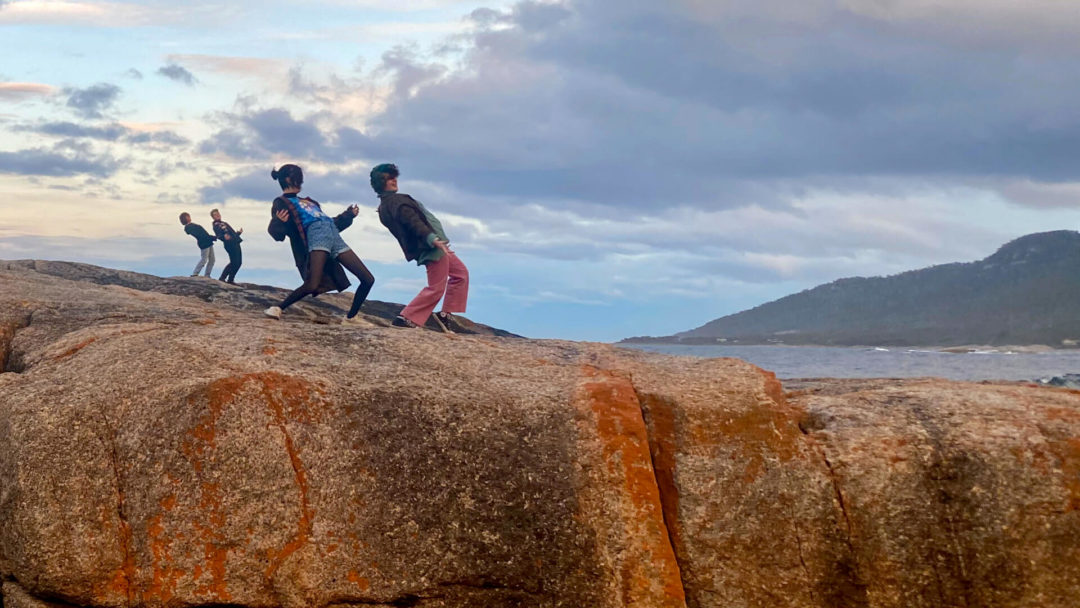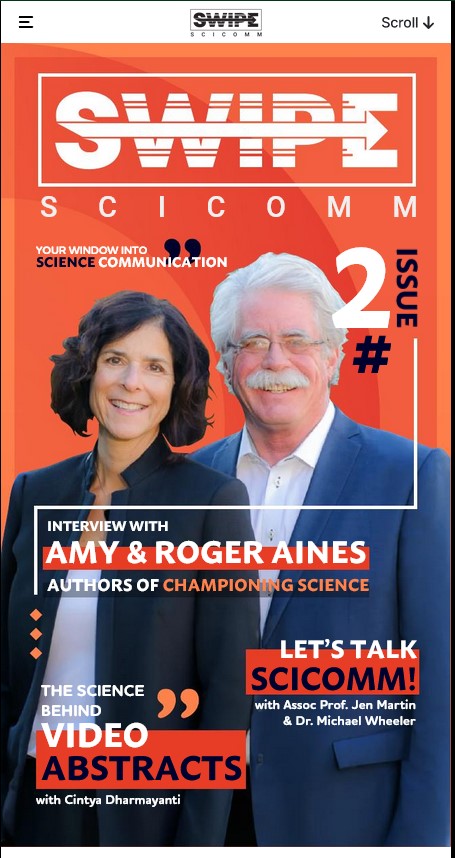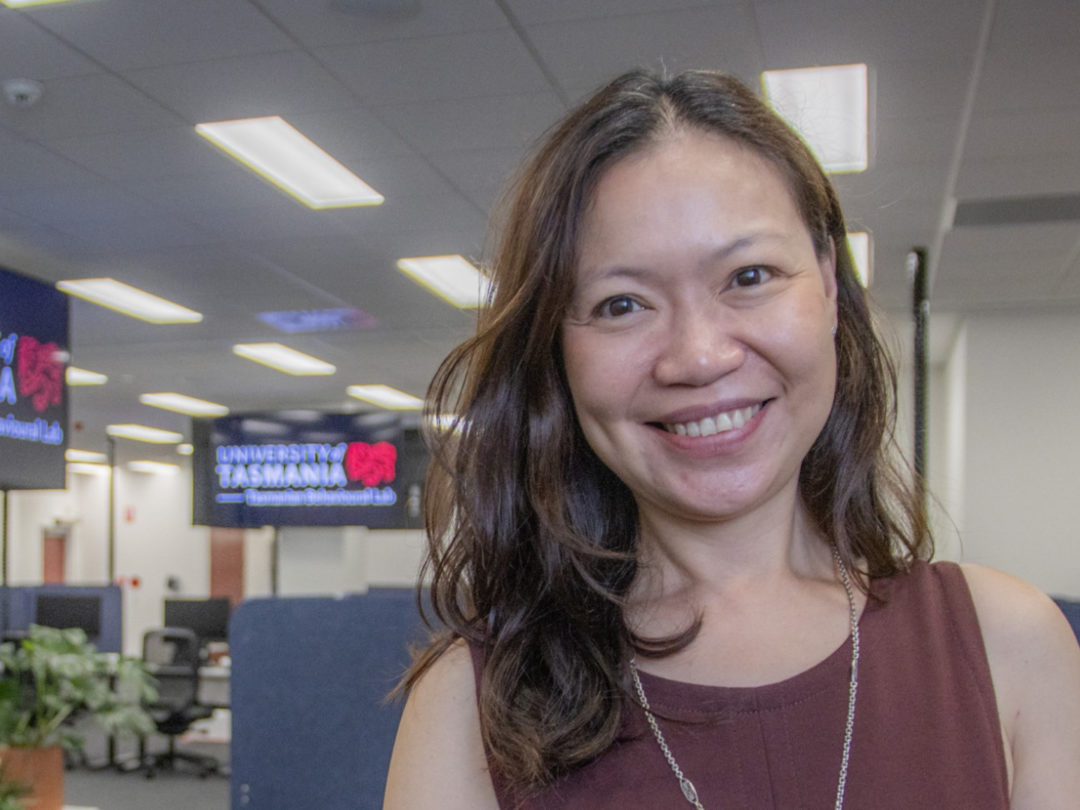Around half of all life on Earth is on the move because of climate change, according to the Intergovernmental Panel on Climate Change (IPCC). Many species’ habitats are changing, forcing them to move, while others are fleeing harm’s way as new predators move in.
This staggering statistic shows just one of the ways climate change is impacting species at both ends of the Earth. In this week’s episode of The Conversation’s climate podcast Fear & Wonder, we travel from the Arctic to Tasmania to see how these changes are playing out.
Listen to conversations with Finnish fisherman and IPCC scientist Tero Mustonen about the changes he has observed in his locale, and Australian marine ecologist and IPCC author Gretta Pecl, whose research has helped map the rapid redistribution of life on Earth
The Tasmanian Forests & Forest Products Network held its southern Burgers, Beers and Bright Ideas event in Hobart earlier this month, and attendees were intrigued by CMS' member Professor Swee-Hoon Chuah, who presented to the audience about behavioural insights and nudges, and spoke about how industry could apply these behavioural insights to bring about behaviour change in the context of diversity and inclusion.
Prof. Chuah said businesses have started implementing ‘inclusion nudges’ to encourage diversity and inclusion.
“McKinsey & Co. for instance, have been using nudges featuring memorable stories or visuals designed to activate inclusive behaviours and make them stick,”.
Read more about Prof. Chuah's presentation on behavourial economics here.
CMS co-hosted the inaugural Curious Climate Showcase on Feb 28th at CSIRO in Salamanca. The event, which was opened by UTAS Vice-Chancellor Prof Rufus Black, sought to celebrate the success of the two programs including the many awards they have received - and to thank the many climate experts who have volunteered their time and expertise to providing climate information to answer questions submitted to the programs.

In 2021-2, 50 classes from schools around Tasmania brainstormed climate questions and submitted their 456 ‘must ask’ questions to the Curious Climate Schools program. The Curious Climate Schools team then enlisted the expertise of over 80 climate experts (from CMS and other organisations) to provide responses to children in formats that were interesting and accessible to them - check out the Curious Climate and Curious Climate Schools websites here:

Join our roving Curious Climate scientists, Gretta and Chloe as they share their insights on the success of the Curious Climate mission with the new UK based SWIPE SciComm magazine.
Read the article here
IMAS Director and CMS member Professor Catriona Macleod has studied seaweeds as ecosystem health indicators for many years and is interested in how we can use seaweed to clean up nutrients in our coastal systems. In this article, she talks about how the Marine Bioproducts Cooperative Research Centre has opened her eyes to the huge diversity of Australian seaweeds and their many amazing applications.
Seaweed is increasingly seen as a solution to many of the world’s most pressing problems. Interest in farming seaweed has exploded.
There’s such a wide range of applications, from fertilisers to foods, bioplastics, textiles, supplements and carbon sinks. It’s hard to think of another substance with so much potential.
Can seaweed save the world?
Read the full article here at the Conversation.com.

Tasmania’s first behavioural insights research lab has been launched in Hobart at the University of Tasmania.
The Tasmanian Behavioural Lab will provide businesses, not-for-profits, and government departments across the state with access to behavioural science consultancy, research and training to improve the lives of Tasmanians.
Learn more here.
Communities around the world will observe International Day of Women and Girls in Science on Saturday 11 February 2023. This year’s focus is the contribution of women in science to tackling the UN sustainable development goals; working towards clean, sustainable and healthy cities and communities, as well as using science to enhance our relationship with water.
Mibu Fischer is a marine scientist with CSIROs Environment sitting in the Sustainable Marine Futures Program, and an affiliate with CMS. The majority of her work focuses on exploring inclusion and respect for Indigenous Science and Knowledge within academia. Read her blog post on amplifying Indigenous voices here.
Supported by CMS, this film explores Tasmanian Aboriginal connection to kelp forests. The film also features CMS affiliate Dean Greeno, and was released January 6th at an amazing launch event. Watch the film and see the pics here.
This article features the Curious Climate Tasmania project and its recent awards.
This article also features results from Emma Hamasaki’s 3rd year research project, supervised by CMS members Dr Rachel Kelly and Dr Aysha Fleming.
Read article here